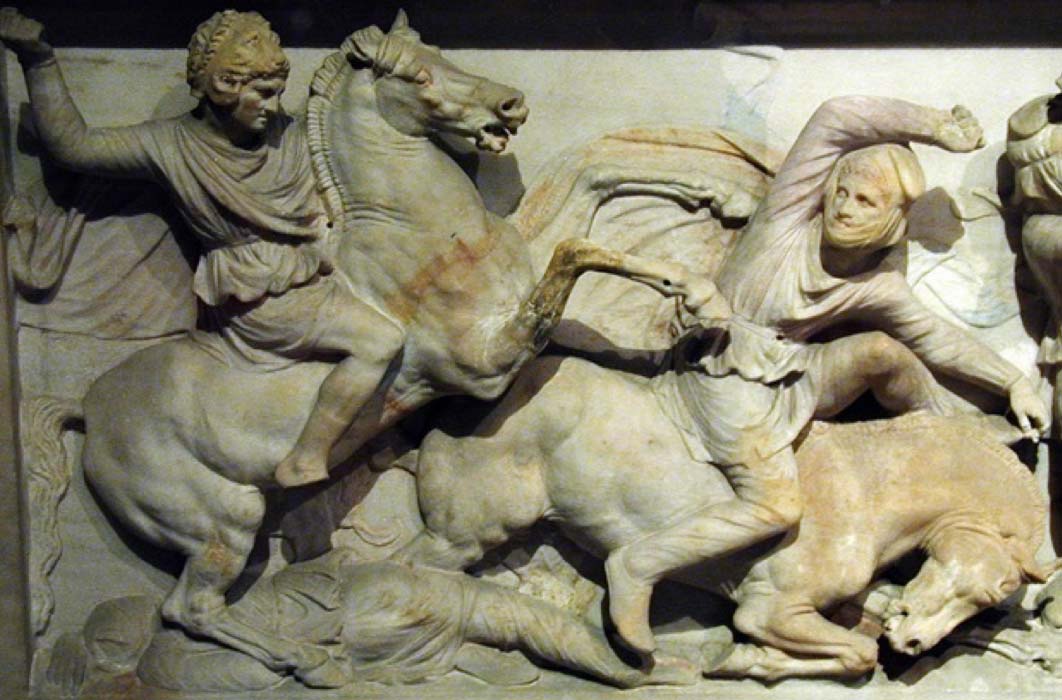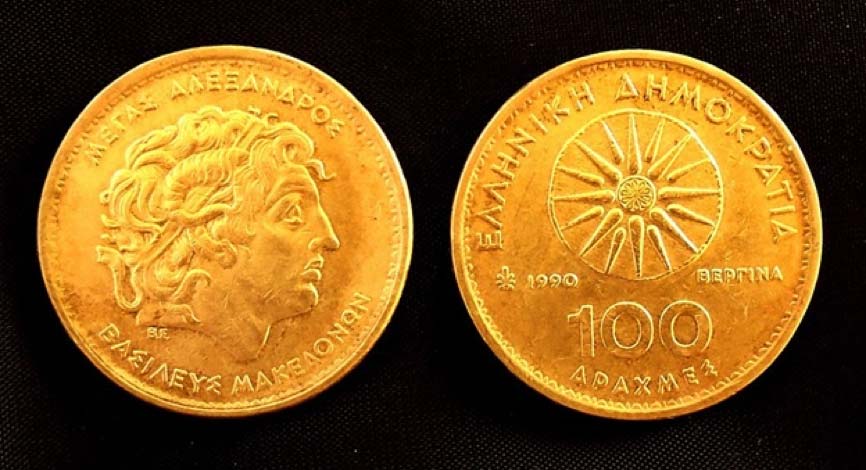
Herodotus’ Fish-Eating Horses and Founding Myth of the Macedon Royal Lineage
In Greece, Alexander the Great is coveted as a national hero; the cluster of royal tombs discovered in 1977 at the archaeological site of Vergina, which is thought have housed Alexander’s father, Philip II (reigned 359-336 BC), is cherished as a national treasure. And when a new socialist state, The Republic of Macedonia, appeared on Greece’s northern border in 1991 after the breakup of Yugoslavia, and appropriated the symbol of the ancient kings of Macedon for its state flag - the so-called ‘Star of Vergina’ - blood ran hot in nationalistic veins from Athens to Thessaloniki.

Facade of Philip II of Macedon tomb in Vergina, Greece. The door is made of marble and the order is Doric. (CC BY-SA 2.0)
Are the Macedonians Greek?
The ancient Macedonians were Greeks, claimed domestic political commentators. “Our Philip and Alexander remain standard bearers of Greek culture and a Hellenistic Era when Greek culture spread to enlighten the known world”, the state newspapers reminded the world. This stance has always been somewhat ironic: Philip and his son smashed Greek power at the Battle of Chaeronea in 338 BC, thereby ending 170 years of democracy that would disappear from Athens for the next two millennia. It also marked the end of the ‘Classical Age’ of Greece. Moreover, contemporary Athenian orators like Demosthenes had hissed that the ‘Macedonians did not even make good slaves.’
Those born outside the borders of ancient Hellas were referred to wholesale as barbaroi, principally due to the noise of their discordant and insonorous speech. Even the Peloponnesian War historian, Thucydides, who owned land in the Strymon River basin in the heartland of ancient Macedon, termed them ‘barbarians’, certainly the mountainous ‘Upper’ feudal cantons yet to enter into diplomacy with the Greek cultural milieu.

The Vergina Sun on the modern Greek 100 drachmas coin (CC BY-SA 4.0)
This state of affairs was a little embarrassing for King Alexander I of Macedon (reigned 498-454 BC) who lived through the Persian Wars and yearned to participate in the Olympic Games, as only pure Greeks were allowed to compete. Somehow, he had to convince the ‘neutral’ judges from Ellis of his eligibility. Step in Herodotus, the historian from Halicarnassus.
Herodotus a Myth-Telling Barbarophile
Herodotus has been much maligned by modern scholars and the ancients alike; although Cicero generously branded him the ‘father of history’, others were less complimentary. Aristotle termed him a ‘teller of myths’ and his Histories certainly featured a collection of folk-tales that cast suspicion on what remained. Some of the ancient cynicism is decipherable. Herodotus was a barbarophile from what is now Bodrum in Turkey; unforgivably, he revealed the true antiquity of barbarian culture and its eastern gods which predated Hellenic counterparts. The resulting religious cynicism that pervades his work may have offended the deeply pious Greeks.
To modern scholars Herodotus falls foul of placing too much credit in oracles and dreams, the supernatural and portentous elements that need to be swept aside to get to the bottom of true causality. Herodotus’ tall tales remain a bridge too far in the spanning of the information gap from prehistory to the Classical Age of Greece.




